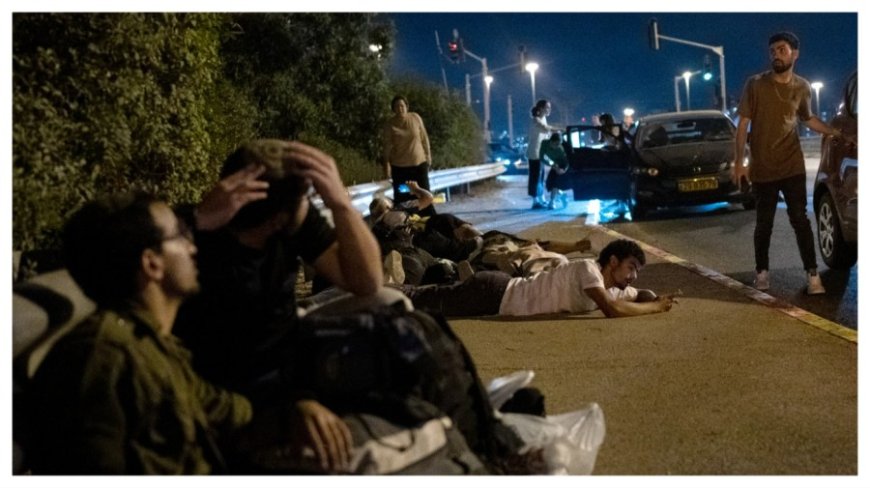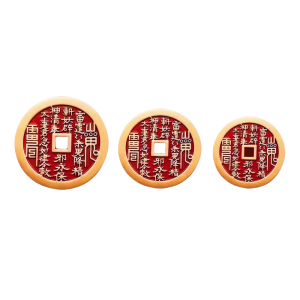What Iran’s missile attack on Israel felt like
HAIFA, Israel -- I knew right from the get-go this attack from Iran was going to be different than anything we had seen. Over the past year, I’ve personally witnessed countless rocket attacks on cities like Tel Aviv, Ashkelon and Sderot coming from Gaza. They were so common in the early aftermath of the Oct....

HAIFA, Israel -- I knew right from the get-go this attack from Iran was going to be different than anything we had seen.
Over the past year, I’ve personally witnessed countless rocket attacks on cities like Tel Aviv, Ashkelon and Sderot coming from Gaza. They were so common in the early aftermath of the Oct. 7 attacks that you inevitably developed a routine. Sirens blare, you run into a bomb shelter, sit there for five to 10 minutes, then resume your day.
The moment the announcement was made Iran was preparing a ballistic missile strike on Israel, a thick cloud of anxiety formed over all of Israel. The leadership here was telling people to avoid gathering in public and to not stray too far from a bomb shelter.
Millions knew right away this would be no ordinary strike.
Then came the alerts on our phone that the attack was launched. My phone has never pinged in such an incessant manner as I watched every community in Israel — North, South, large and small — put on notice.

I was stationed in Haifa, where I waited the 10-15 minutes for those Iranian missiles to travel into our line of sight and watched as they crossed over Syria. Some were intercepted quickly, emitting large orbs of explosions in the sky — similar to the way fireworks ignite the Fourth of July night. But of course, these were weapons of war and not some kind of celebratory display.
We had one of the first views of the attack from northern Israel, though it was cities like Tel Aviv that received the brunt of the targets. Many of the missiles were intercepted by Israel’s air defense systems, but there were plenty of impacts — far more than Israelis are accustomed to seeing.
With help from many of Israel’s partners including the United States, the attack was largely repelled. National security adviser Jake Sullivan even called it “defeated and ineffective.” At this hour, only one death has been reported: a Palestinian man in the West Bank.
But make no mistake about it: We are not talking about a past-tense episode in the Middle East. We are very much living in a present-tense world rife with uncertainty.
This morning, the area just north of us was targeted by one of Iran’s proxies, Hezbollah, with a large rocket barrage.
In the early afternoon here, alerts sounded multiple times in communities spread out across northern Israel, also due to Iran’s proxy in Lebanon.
And of course, the elephant in the room. There are highly consequential conversations taking place across Israel, including in the Israeli War Cabinet, largely revolving around one question: How will Israel respond to Iran’s attack?
The Israel Defense Forces says it is operating at its highest level of alertness.
Prime Minister Benjamin Netanyahu is vowing to not let this action go unpunished.
“This evening, Iran made a big mistake – and it will pay for it,” Netanyahu said Tuesday night after the missile attack. “The regime in Tehran does not understand our determination to defend ourselves and to exact a price from our enemies.”
Iran, in turn, has said it will retaliate should Israel make a move against it. “Should the Zionist regime dare to respond or commit further acts of malevolence, a subsequent and crushing response will ensue,” the country’s mission to the U.N. posted on X.
And in the interim, the IDF’s operations in Southern Lebanon are continuing.
Millions around the globe will be watching these next few hours in the Middle East hoping a regional war can be avoided.
But to many in Israel, after the Oct. 7 attack by Hamas, a year of strikes from Hezbollah and the ramping up of the Houthis’ efforts out of Yemen — all of which are Iranian proxies — this attack by Iran further solidified in their minds what they’ve already believed:
War with Iran is not around the corner — it’s already been here.
Robert Sherman is a NewsNation national correspondent.
What's Your Reaction?





















































